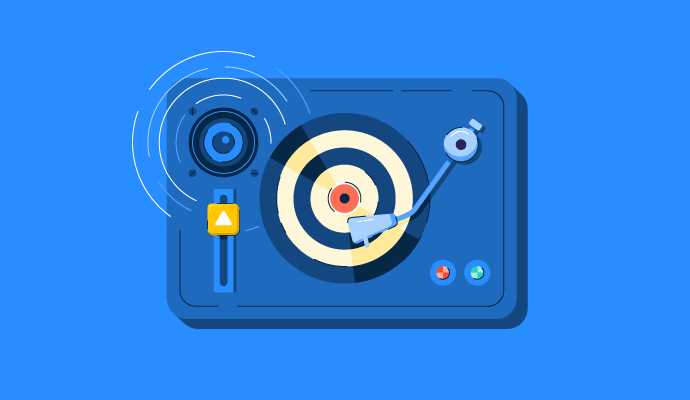Not all leads are created equal.
If your sales team paid every lead that came through the funnel an equal amount of attention, reps would be wasting a tremendous amount of time. That’s because not every lead deserves equal attention – some are naturally more likely to buy than others.
To address this issue, sales and marketing teams developed a process for qualifying leads to determine which ones have the highest potential to buy. Leads have to match specific criteria to be considered “sales-ready.” The ones that pass the test will move on to the next stage of the buying process.
This is a sales qualified lead.
In this article, we’ll cover the basics of the qualifying process and explore the meaning of a sales-qualified lead in more depth.
Sales and marketing jargon can get tricky. To keep things simple, let’s define SQL before we dive in.
Sales qualified lead definition
A sales qualified lead (SQL) is a prospective buyer that has been vetted by marketing and sales, and determined as having a high probability of making a purchase.
In short, a sales qualified lead is a high-quality lead that has legitimate potential to eventually convert to a customer. In the hierarchy of leads, SQLs are a very high priority and should be followed up with as soon as possible after they demonstrate interest.
SQL vs. MQL
In order to grasp the full picture, it’s important to understand the difference between sales qualified leads and marketing qualified leads (MQLs).
For a prospective buyer to become a lead, they must express interest in the product or service that you are selling. It’s likely that this buyer filled out an online contact form or provided their information in another way to indicate that they would like to be contacted. When this happens, the prospective buyer is now a marketing-qualified lead.
Tip: Just because a buyer is interested in learning more about your product or service doesn’t mean they can or will buy. This is why it’s necessary to go a step further. With G2 buyer intent data, you can see when potential buyers are looking at your profile and even comparing you against your competitors. Discover how you can use this solution to identify and qualify more leads.

At this point, the MQL will be passed off to the sales team. Then, sales will qualify the lead to determine if it becomes an SQL or if it is not fit to move forward. If the lead is disqualified, never delete it from your database in case the buyer comes back and is a better fit in the future.
Tip: Learn how to act on and maximize the potential of disqualified leads that enter your funnel.
Want to learn more about Sales Intelligence Software? Explore Sales Intelligence products.
How are SQLs qualified?
Qualification criteria vary greatly from one business to the next and will be based on your ideal customer profile. These criteria often include details related to demographics, company size, geographic location, etc.
For reference, BANT is a popular qualifying framework used by many sales teams that has been proven successful across a variety of businesses and industry verticals. It stands for budget, authority, needs, and timing. These criteria can be used as a foundation for developing a list of qualifying questions that are more tailored to your ideal sales qualified lead.
Tip: Learn the most important sales qualifying questions to ask in 2019.
The best way to ensure that leads are meeting your qualification standards is by scheduling a phone call with the prospective buyer as an initial follow-up. The goal of this initial discovery call is to gain an understanding of why the buyer is interested in your product or service and ask the necessary questions to determine if they are truly sales-ready.
This call isn’t meant to be a direct sales pitch – think of it as a casual business conversation where both parties evaluate if they should move forward with each other.
Who is responsible for qualifying SQLs?
As you can tell by the name, SQLs are qualified by the sales team. In recent years, many companies have built out business development teams that are solely responsible for serving this function. Allocating the entire qualifying process to a specific team allows for a highly efficient sales process.
With this method, business development reps (BDRs) specialize in qualifying to ensure that only the best leads move on to the next step. This way, sales account executives (AEs) can focus their efforts on buyers who have been carefully vetted and have a high probability of buying. After a lead is determined to be an SQL, it is passed off to an AE, who is responsible for nurturing it as a prospect in the hopes of eventually converting it to a customer.
Sales and marketing alignment
Defining what SQL means to your business is key to eventually converting qualified leads to customers. This is accomplished by effective communication and alignment between sales and marketing. Both parties should outline clear expectations for their part in the sales funnel, and detail the process by which a lead will be passed off from one to the other.
Wrapping up
By establishing strong qualification criteria and aligning sales and marketing goals, your funnel will be fueled by sales qualified leads that have a high probability of buying. All that’s left to do from here is convert your leads to customers. So, what’re you waiting for?
Looking for ways to boost SQL performance? Learn how lead scoring software can help.

Izabelle Hundrev
Izabelle is a Partner Marketing Specialist at InStride and a former content specialist at G2. Outside of work, she is passionate about all things pop culture, food, and travel. (she/her/hers)
